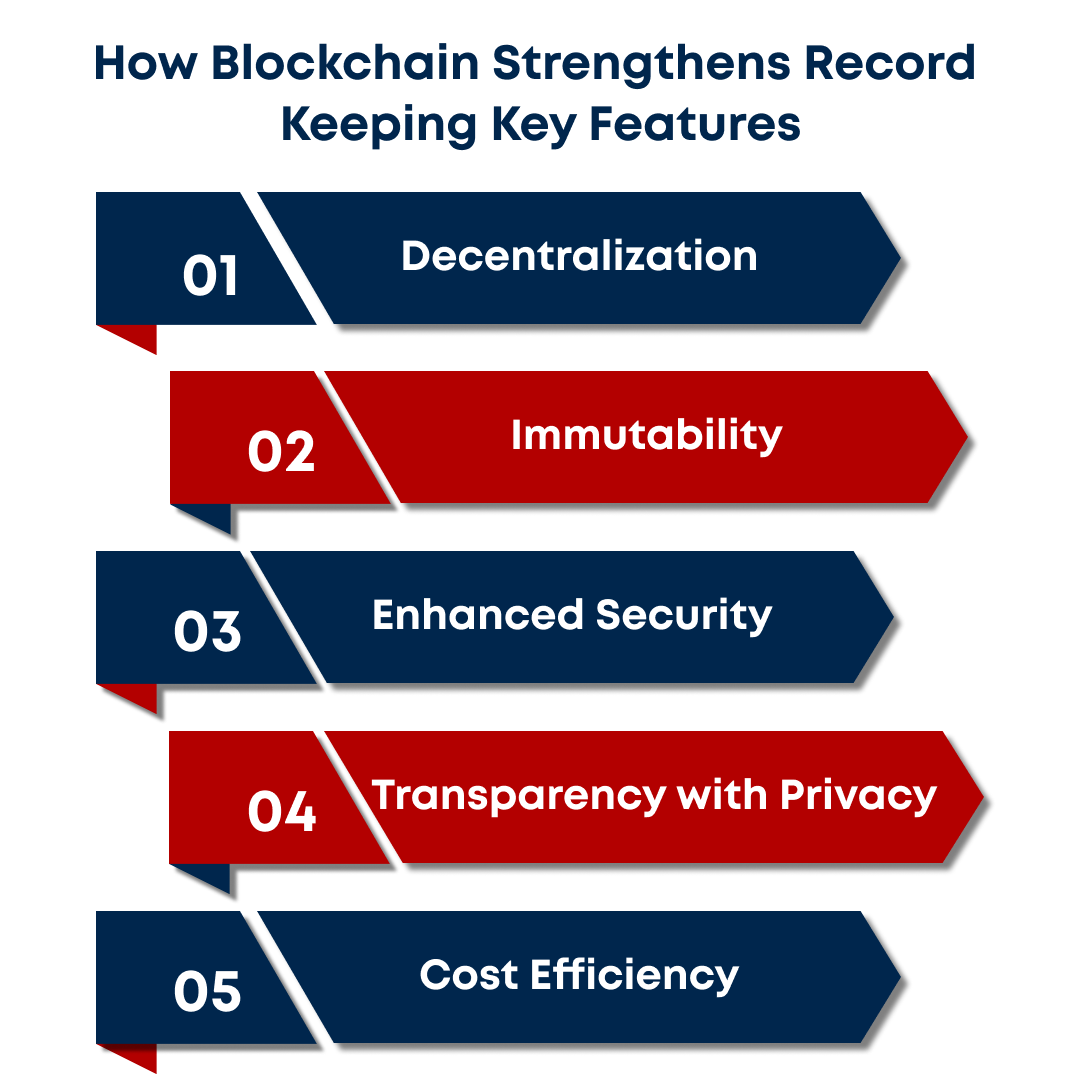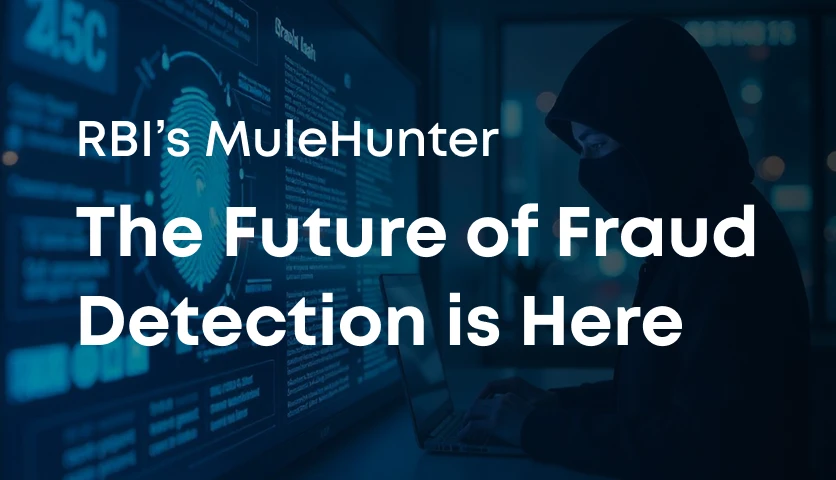In today’s fast-paced digital age, the need for secure, transparent, and tamper-proof record-keeping systems has become more critical than ever. Whether it’s safeguarding medical records, financial transactions, or sensitive business contracts, the conventional methods often fall short in terms of security and reliability. Enter blockchain technology—a revolutionary solution that promises to transform how we handle data, making record-keeping not just secure but also more efficient.
This blog explores the integration of blockchain technology into record-keeping systems, breaking down its benefits, applications, and how businesses can embrace this innovation.
What is Blockchain Technology?
At its core, blockchain is a decentralized and distributed ledger technology. It records transactions across multiple computers, ensuring the data is:
Immutable: Once recorded, the information cannot be altered.
Transparent: Every transaction is visible to authorized participants.
Secure: Advanced cryptographic algorithms protect the data from unauthorized access.
Think of it as a digital chain of blocks where each block contains a set of data, a timestamp, and a cryptographic hash of the previous block. These features make blockchain an ideal solution for secure record-keeping.
Why Traditional Record-Keeping Falls Short
Before diving into blockchain integration, let’s take a look at the challenges associated with traditional record-keeping systems:
Prone to Errors: Manual entry and human intervention increase the chances of inaccuracies.
Vulnerable to Fraud: Centralized systems can be hacked or manipulated.
Lack of Transparency: Stakeholders often lack visibility into the data, which leads to trust issues.
High Maintenance Costs: Managing and securing large volumes of data require significant resources.
Blockchain addresses these issues by creating a tamper-proof and decentralized framework for record management.
How Blockchain Secures Record-Keeping

1. Decentralization
Blockchain eliminates the need for a central authority. Data is stored across a network of nodes, making it nearly impossible for a single entity to alter or delete records.
2. Immutability
Every record added to the blockchain is timestamped and cryptographically sealed. This ensures that the data remains unchanged, providing an auditable trail for stakeholders.
3. Enhanced Security
Blockchain uses encryption techniques like SHA-256 to secure data. Additionally, consensus mechanisms like Proof of Work (PoW) or Proof of Stake (PoS) ensure that only verified transactions are added to the ledger.
4. Transparency with Privacy
While the blockchain ledger is transparent, access can be controlled through private or permissioned blockchains. This ensures sensitive data is visible only to authorized users.
5. Cost Efficiency
By automating processes and reducing the reliance on intermediaries, blockchain significantly cuts down operational costs.
Real-World Applications of Blockchain in Record-Keeping
1. Healthcare
Blockchain ensures that medical records are secure, accurate, and accessible only to authorized parties. Patients can grant or revoke access to their records, ensuring privacy and control.
2. Financial Services
From verifying transactions to preventing fraud, blockchain enhances the security and transparency of financial records. Banks and financial institutions use it for seamless reconciliation and auditing.
3. Supply Chain Management
Blockchain enables real-time tracking of goods, ensuring transparency and authenticity. It’s particularly useful in industries like pharmaceuticals, where counterfeiting is a concern.
4. Real Estate
Property records and land titles can be stored on the blockchain, reducing fraud and simplifying the transfer process. Smart contracts can automate legal agreements between parties.
5. Government and Public Records
Governments can use blockchain for storing citizen data, election results, or public expenditure records, ensuring transparency and preventing corruption.
Steps to Integrating Blockchain for Secure Record-Keeping
Understand Your Needs
Identify the specific record-keeping challenges your organization faces. Is it data tampering? High operational costs? Lack of transparency?
Choose the Right Blockchain Type
- Public Blockchain – Ideal for transparency and decentralized use cases.
- Private Blockchain – Best for organizations needing restricted access and higher control.
- Hybrid Blockchain – Combines features of both for tailored solutions.
Select a Blockchain Platform
Platforms like Ethereum, Hyperledger, and Corda offer customizable solutions for record-keeping. Evaluate their features, scalability, and security protocols.
Plan the Integration
Work with blockchain experts to design a system that aligns with your existing infrastructure. This includes:
- Setting up nodes.
- Developing smart contracts.
- Creating user interfaces.
Test for Scalability and Security
Before full deployment, test the blockchain solution to ensure it can handle your organization’s data volume and meets security requirements.
Train Your Team
Blockchain is still a relatively new technology. Investing in training ensures your team can manage and maintain the system effectively.
Challenges in Blockchain Integration
1. Scalability Issues
As the number of transactions increases, some blockchain platforms may struggle to maintain speed and efficiency.
2. High Initial Costs
While blockchain reduces long-term costs, the initial setup can be expensive.
3. Regulatory Uncertainty
Different regions have varying laws regarding blockchain and data privacy, which can complicate deployment.
4. Skill Gaps
Finding skilled blockchain developers can be challenging, especially for niche industries.
At Autotroph Infotech, we understand these challenges and provide tailored blockchain solutions to ensure seamless integration and minimal disruption to your operations.
The Human Touch: Why Blockchain is More Than Just Technology
Blockchain is not just about advanced algorithms or cryptographic functions; it’s about building trust in an era where data breaches are rampant. Imagine a world where patients don’t have to worry about their medical records being tampered with or where businesses can confidently share sensitive data without fear of fraud.
Blockchain empowers individuals and organizations to regain control over their data. It’s a step toward a more transparent, secure, and connected world.
Why Choose Autotroph Infotech for Blockchain Integration?
At Autotroph Infotech, we combine technical expertise with a deep understanding of industry needs to deliver blockchain solutions that:
- Enhance security and transparency.
- Optimize operational efficiency.
- Drive business growth through innovation.
Our team works closely with clients to design and implement record-keeping systems that align with their goals and address their unique challenges.
The Future of Record-Keeping with Blockchain
As blockchain technology matures, its applications in record-keeping will continue to expand. Innovations like smart contracts, decentralized identity management, and interoperable blockchains will make the process even more seamless and efficient.
Businesses that adopt blockchain early will not only gain a competitive edge but also build stronger relationships with their stakeholders through enhanced trust and transparency.
Conclusion
Integrating blockchain for secure record-keeping is no longer a futuristic concept—it’s a necessity for organizations looking to thrive in the digital age. By addressing the challenges of traditional methods, blockchain offers a robust framework that ensures data integrity, security, and efficiency.
Whether you’re in healthcare, finance, or any industry dealing with sensitive records, now is the time to explore blockchain. Let Autotroph Infotech guide you through this transformative journey. Together, we can create a secure and transparent record-keeping system that sets your business apart.
Ready to embrace the future? Let’s connect and make blockchain work for you!

